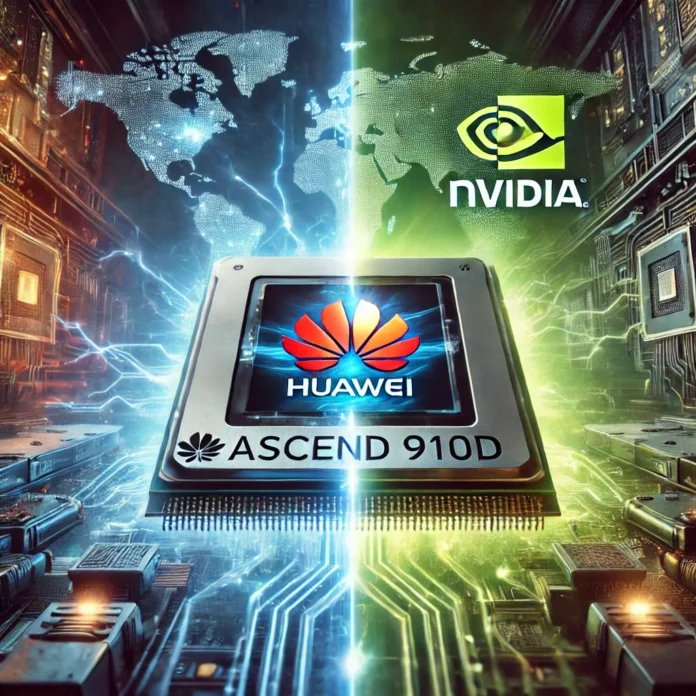In a significant move that could reshape the global AI landscape, Huawei Technologies has announced the development of its most advanced artificial intelligence processor to date—the Ascend 910D. This development positions Huawei as a formidable competitor to Nvidia, the current leader in AI chip manufacturing.
According to a report by Reuters, Huawei is preparing to test the Ascend 910D, aiming to match or surpass the capabilities of Nvidia’s high-end AI chips. The company has approached several Chinese tech firms to evaluate the chip’s performance, with initial samples expected by late May.
The Ascend 910D is the latest in Huawei’s Ascend series, designed to handle complex AI tasks such as deep learning and large-scale data processing. This move is part of China’s broader strategy to achieve self-reliance in critical technologies amid ongoing trade tensions with the United States.
President Xi Jinping has emphasized the importance of self-sufficiency in AI development, urging the nation to strengthen its capabilities in this strategic sector.
Huawei’s advancement comes at a time when the global demand for AI chips is surging, driven by the rapid adoption of AI applications across various industries. Nvidia’s dominance in this market has been challenged by export restrictions imposed by the U.S. government, limiting the company’s ability to supply its most advanced chips to Chinese firms.
The introduction of the Ascend 910D could provide Chinese companies with a domestically produced alternative, reducing reliance on foreign technology and potentially altering the competitive dynamics of the AI chip market.
As Huawei prepares for mass production, the tech world watches closely to see how this development will impact the global AI ecosystem and whether it will trigger a new wave of innovation and competition in AI hardware.




